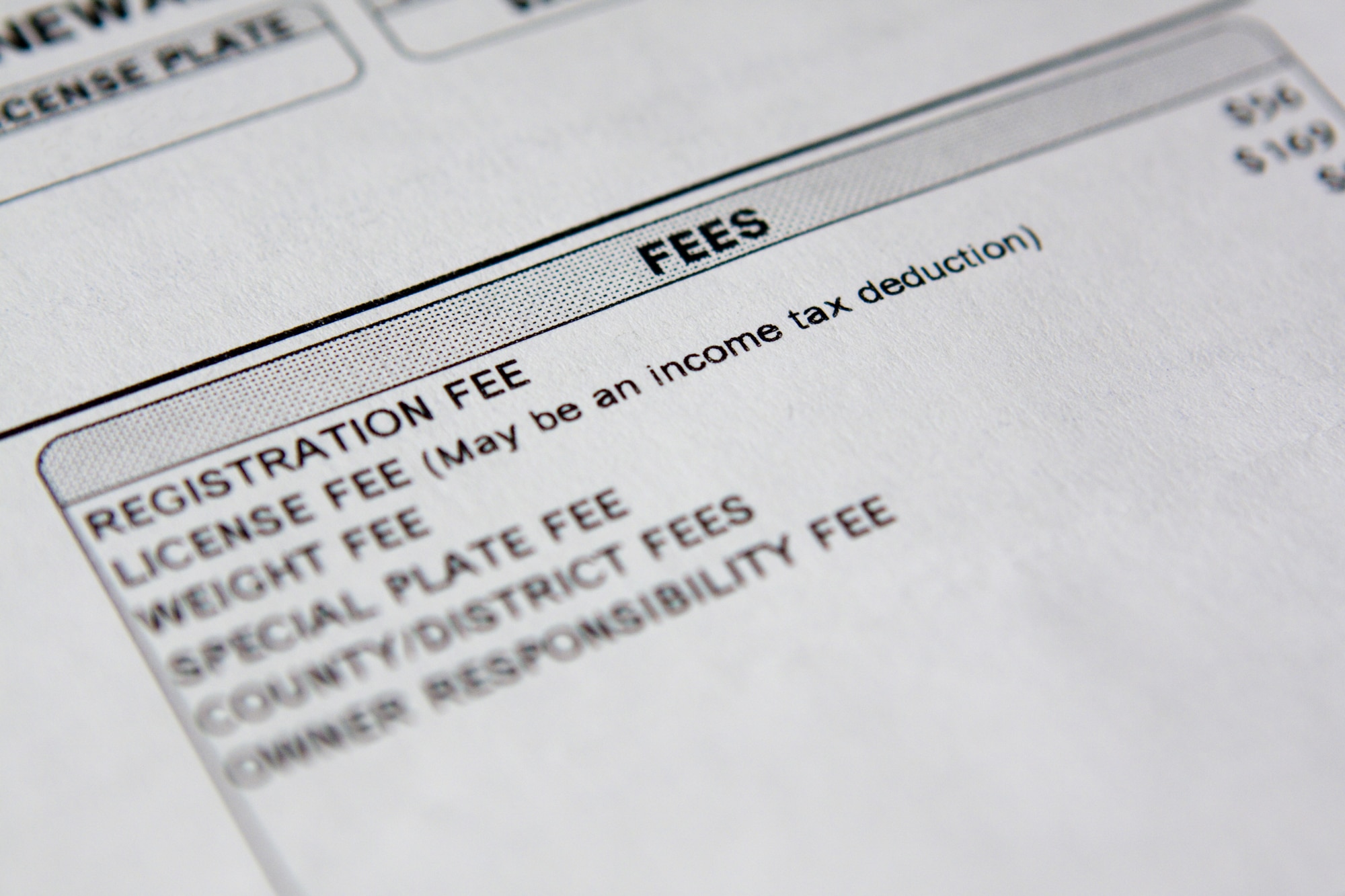What is a Car Registration Fee?
A car registration fee is paid when buying a new or used car. Here's a look at how much you can expect to pay and where the money goes.
 Shutterstock
Shutterstock
Buying a new or used car involves paying for items, services, and fees. First there's the down payment for the car, as well as any monthly payments for it thereafter. Then there's a litany of one-off charges such as destination and handling fees, or other kinds of documentation fees from the dealer.
Finally, you'll need to pay a car registration fee to your local county or state government to register your car, get the title, and get license plates.
What is a Car Registration Fee?
Vehicle registrations help state governments identify who owns a vehicle, and all passenger or commercial vehicles must be registered. To do this, a car owner needs to pay a fee to the state. These fees are usually handled by the dealer, although sometimes you may need to go to a dedicated Department of Motor Vehicles office or maybe your local county clerk. There are several different ways states can calculate a car registration fee, including a simple flat rate, charges that change based on the weight of the vehicle, the value of the vehicle, how old it is, or even how much horsepower the car has.
That also means that the cost to register a particular vehicle can vary widely among states, or even from year to year in the same state. In general, you can expect to pay the most for a brand-new car—which has both a recent model year and is more valuable than an older car. That said, 24 out of the 50 states have simplified things by charging a flat rate, according to the National Conference of State Legislatures.
How is the Registration Fee Used?
Because each state handles the car registration fee differently, there's no one way that the money is used. In California, for instance, the state DMV says the registration fee is shared between:
- Local cities and counties
- California Highway Patrol
- The California DMV
- State highways via Caltrans
- Air Resources Board
- Other state agencies
- State general fund
According to the California state DMV, there's a $60 registration fee, a $28 California Highway Patrol fee, a vehicle license fee, a Transportation Improvement Fee, and county/district fees. Commercial vehicles have separate fees to pay, as well.
Fees in California also directly fund a number of other programs, with funding varying based on vehicle and registration location:
- $1-$3 to install and maintain freeway emergency call boxes
- $2–$19 to help local Air Resource Boards reduce air pollution, plan, monitor, enforce, and conduct studies
- $1–$6 to fund theft prevention education and enforcement of anti-theft and driving under the influence (DUI) programs
- $1–$3 to fund the removal and disposal of abandoned vehicles on roadways
- $1–$6 to fund local fingerprint identification programs
- $10 county transportation project fee to help fund local transportation projects
The car registration fees in California are so complicated that the state offers a calculator to help car owners and buyers figure out how much they can expect to pay. California calculates car registration fees by value, so to figure out the registration fee for a new car, all you need is the age of the car, how it's powered (gas/hybrid/diesel/electric), and the purchase price.
Similarly, the car registration fee in Texas varies a little bit based on the county of registration, but in general, the state charges $50.75 to register a passenger vehicle with a gross vehicle weight of 6,000 lbs. County fees are generally another $10 on top of that.
As another example, fees in Florida vary by vehicle weight, ranging from $14.50 to $32.50.
In all, there are several different fees that you must pay when registering a car, with the total cost varying widely by state. To find out how much it may cost where you live, consult the website or local office of the Department of Motor Vehicles, or its equivalent, in your state.
Written by humans.
Edited by humans.
 Jordan Golson
Jordan GolsonJordan Golson is a transportation reporter covering cars, trains, planes, future cities, mobility and more — basically, if it moves and doesn’t go to space, he's on it. He is especially interested in the intersection of transportation and technology, and that means he goes deep into electric cars, autonomous vehicle tech, sensors, safety, connectivity, and similar topics.
Related articles
View more related articles